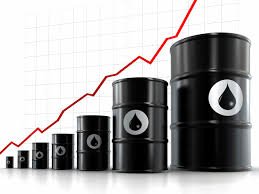The turning point of the oil market in June
The increase in geopolitical risks has led to a dramatic increase in oil prices than last fall. The average price of the WHO's World Tire Index for the fourth quarter of 2017 was $ 55 and for the 2017 total, $ 51. Political risks remain high at least in the next few months.
The reduction of 380 million barrels of surplus storage in the industrialized countries of the Organization for Economic Cooperation and Development (OIC), one of the objectives of the Organization of Petroleum Exporting Countries (OPEC), when it began to cut oil production from 2017, is another factor that has contributed to the dazzling growth of prices Oil has played a role. The surplus storage has now gone, and the market has reached a state of equilibrium and even on the verge of a shortage of supply.
The latest figures indicate an escalating supply shortage in the second quarter of 2018, and the stock shortage is expected to reach 96 million barrels, given the continued decline in Venezuelan oil production and political tensions in the Middle East. OPEC production is expected to continue until the end of the global oil price cut by the end of 2018. Libya and Nigeria, which were excluded from the global oil reduction agreement, now close to their maximum capacity.
Even without additional impacts from unpredictable political events, the average price of the WHO's crude oil futures will probably remain close to $ 70 per barrel by the end of this year, which is higher than the average of $ 51 in 2017. The Brent crude oil price advantage over WT has now reached $ 7 and is expected to stay high. In the past years, this price advantage was usually about $ 3.
Therefore, after the seasonal growth of oil storage in the first quarter of 2019, storage capacity is expected to continue. Saudi Arabia's surplus capacity and its willingness to supply oil on the market will be one of the main drivers of the market in the future. News reports, including Reuters reports from the Time magazine, indicate Saudi Arabia wants more than $ 80 a barrel for oil. Saudi Arabia's oil price is based on the Brent price index.
Other variables will also affect the price of oil. The Brent crude leakage of about $ 50 in the second quarter of 2017, to nearly $ 79 in current terms, is likely to have a negative impact on oil demand growth. Daily demand for crude oil in the world is projected to reach 1.4 million barrels a day this year, while demand growth in 2017 was about 1.570 million barrels a day. Demand growth is likely to be lower in 2019.
After growing 735,000 barrels of US oil production in 2017, the country's daily production is projected to grow at a peak of 1.780,000 barrels this year. The rapid growth of US oil production is expected to continue in 2019, and the estimated annual growth of one million and 800 thousand barrels per day in the country is a prudent estimate.
Although oil price growth may encourage oil production growth in other non-OPEC countries, the possibility of reducing offshore oil production may be a major cause for concern and may lead to a reduction in the overall production of non-US oil.
According to prudent and initial estimates of supply and demand, demand for OPEC's crude oil production could drop by about 300 thousand barrels in 2019 to 31.3 million barrels a day. However, due to Venezuela's oil output and the Middle East crisis, OPEC's oil production, which reached 31.650 thousand barrels a day in April this year, is continuing its slump, and it is likely in 2019 It reaches an average of 31 million barrels a day, which is less than market demand.
The decline in oil storage in the member states of the Organization for Economic Cooperation and Development can continue to continue, unless Saudi Arabia, other members of OPEC and Russia, will increase production in the coming months.
The OPEC meeting on June 22, 2018 is a major milestone in understanding the organization's goals.
